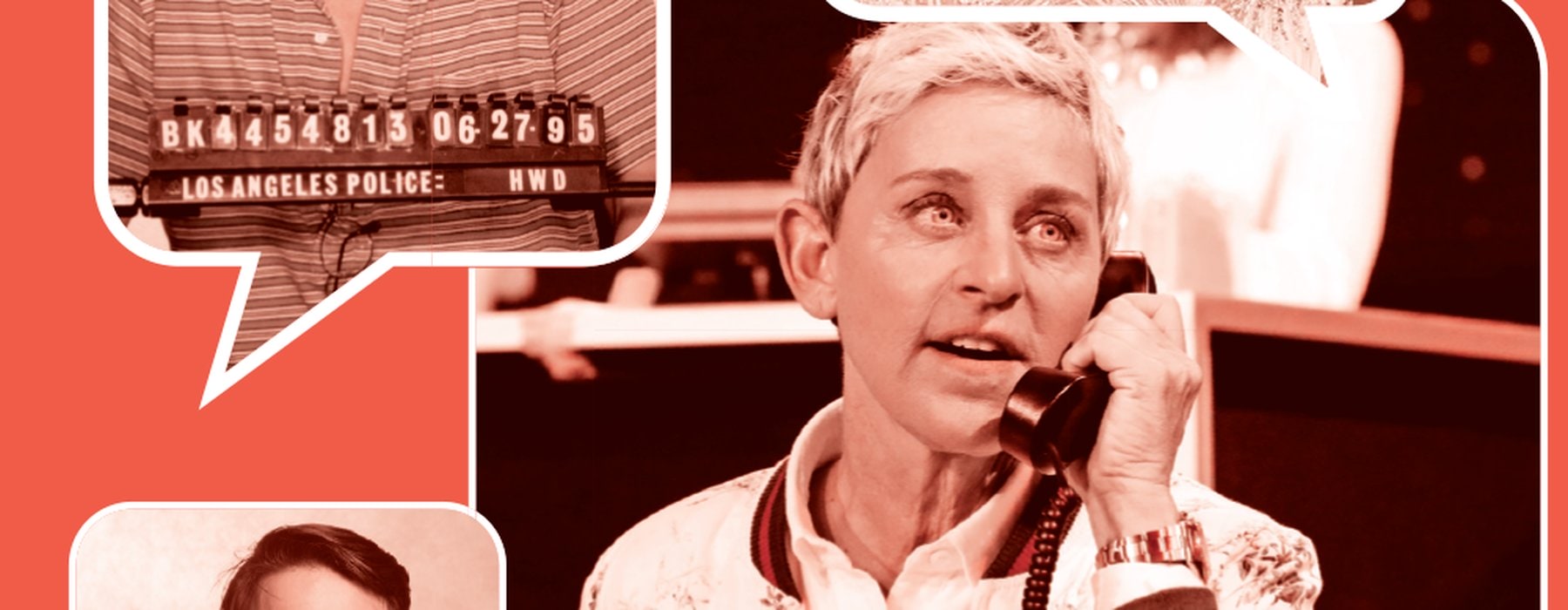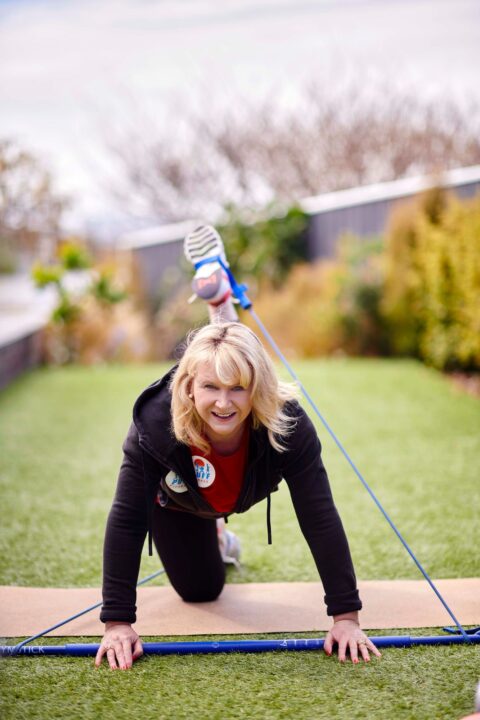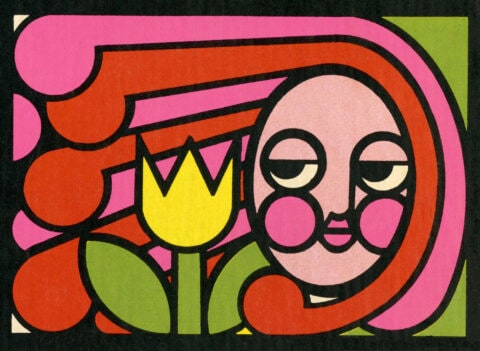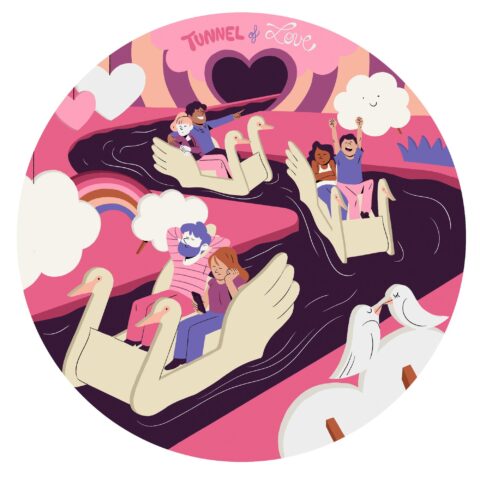In the age of trolls, shaming and pile-ons, public grovelling has become a key feature on social media. We explore why the art of the apology is more important than ever.
Chrissy Teigen – model, entrepreneur, potent internet force, wife of musician John Legend, muse for his greatest hit “All of Me” – has issued an epic apology for past online trolling.
After a month-long break from social media – through which she has built a vast platform, reaching 13.5 million Twitter followers and 35 million on Instagram – Chrissy published a blog post in June on the site Medium, in which she said: “Not a single day, not a single moment has passed where I haven’t felt the crushing weight of regret for things I’ve said in the past.
“I’ve apologised publicly to one person [the TV personality Courtney Stodden, to whom, in 2011, Chrissy allegedly tweeted messages encouraging the then 16-year-old to kill herself], but there are others – and more than just a few – who I need to say I’m sorry to. I’m in the process of privately reaching out to the people I insulted… I was insecure, immature, and in a world where I thought I needed to impress strangers to be accepted… I was a troll, full stop. And I am so sorry.”
What are we to make of Chrissy’s apology? Hmm. It is certainly effusive. How sincere it is would very much depend on your perspective and, I imagine, whether you’re one of the people she trolled.
It was offered because those 10-year-old tweets to Courtney resurfaced. Would Chrissy have entertained such a torturous period of self-reflection, felt the weight of regret so crushingly, if they hadn’t been found? Would she have arrived at this precious point of self-knowledge organically – or would she have carried on tweeting, regardless?
Also, do we think Chrissy might be as interested in damage limitation – in protecting a public image enmeshed with ideas of social justice, of righteousness, of activism (she was once blocked on Twitter by then-president Donald Trump; she and husband John Legend are given to expensive acts of philanthropy) – as she is true redemption?
And anyway, is a blog post adequate to make amends for the hurt Chrissy now understands she has caused? Is reaching out in private, to people she publicly attacked, the right way to proceed? One of Chrissy’s targets is the chef Alison Roman, whose cookery column in The New York Times was put on suspension in May 2020 after a bitter Twitter row with the model. Alison has now left the paper.
Whether the chef is one of the people to whom Chrissy has, or will, privately apologise is not known, but if she is, can a private “sorry” make up for Alison losing her job? I’m reminded rather of a friend who, some years ago, was subjected to a Twitter pile-on orchestrated by a colleague with considerably more followers than she, and who lost work as a consequence.
The Piler On-er would eventually face my friend, in real life, to issue what my friend felt was a completely heartfelt apology. Only, as my friend said at the time: “What use is that to me, now?”
So, then, should Chrissy not have apologised at all? Should she have sat quietly, with her crushing regret, done nothing, said nothing and suffered the potential consequences to her reputation? Maybe, but what would that serve? Isn’t some apology better than none at all?
In posting her blog, might Chrissy be offering an example to others – other celebrities, of course, but also, to the rest of us? To those non-celebrities among us who’ve indulged in a little casual trolling, who’ve jumped on a Twitter pile-on because we were bored, and why not give a good kicking to the same person everyone else is kicking today? What’s the harm? They probably deserve it anyway!
I genuinely don’t know. I’ve experienced my share of trolls. The righteous ire of the internet has been trained against me for crimes as various as my not considering wolf whistles equivalent to sexual assault, to me talking openly about my experience of abortion.
It has been horrific and – as was its intention – shaming. I wouldn’t recommend it. I’ve never received an apology, although I have encountered two of my trolls-in-chief in real life: the first ran away from me in a theatre lobby (and, oh boy, I’d take that blatant, real-life expression of fear over an online apology any damn day), while the other remained remorseless in the face of my confrontation, although she did say that she didn’t believe what she’d said to me online qualified as trolling.
Of course, these things are subjective, but given her opening tweet had read, “You’re not well in the head,” with a follow-up making reference to me “killing the little babies inside of [me]”, I’d say she was at least troll-adjacent. Still, her conviction she had not trolled me, her absolute inability to see herself in troll terms, was interesting. I do think it is to Chrissy’s credit that she has labelled herself “troll”.
Might Chrissy’s post be part of a bigger trend – the latest, splashiest, most remorse-laden example yet of the Modern Apology Movement? It comes hard on the heels of former Downing Street Chief of Staff Dominic Cummings’ committee- hearing contrition after all. “I would like to say to all the families of those who died unnecessarily how sorry I am for the mistakes that were made and for my own mistakes, at that,” he told a Covid committee last month.
However, you could be forgiven for thinking that his statement was less a genuine expression of self-reproach, and more another pointy stick with which to skewer Boris Johnson’s government.
Then again, given that the degrees of sincerity and potential for complex underlying agenda might be precisely what characterises the Modern Apology Movement, Dominic could be a leading exponent after all.
Ellen DeGeneres can probably be said to have kicked off the Modern Apology Movement last September by expressing deep regret live on air for the toxic bullying working culture rumoured to permeate behind the scenes of her incredibly successful chat show – the same incredibly successful chat show that would be cancelled, months later, 19 years into its run.
At the other end of the broadcasting spectrum, in February, Reply All – the (brilliant) American podcast that launched in 2014 and dedicated itself to analysing the ways in which the internet intersects with, and alters, our lives – very nearly imploded after Ellen-esque accusations of toxicity and bullying directed at co-founder and co-host PJ Vogt and senior producer Sruthi Pinnamaneni. Both of them (you guessed it) subsequently apologised, then left the show to its own moment of Chrissy Teigen-grade regretful introspection, before a tentatively attempted relaunch last month.
In March, Alexi McCammond, the freshly appointed editor of the progressive publication Teen Vogue, offered up two lengthy online apologies concerning racist tweets sent in 2011 and 2012, saying sorry weeks before she had even started her new gig, and the future of the England cricketer Ollie Robinson – who also sent racist tweets in 2012 – hangs in the balance, despite his apology in early June.
As I write, Lin-Manuel Miranda, the composer, lyricist, Tony Award-winner and star of new film In The Heights, just issued an apology regarding “Afro-Latinx representation in [In The Heights]… It is clear that many in our dark-skinned Afro-Latinx community don’t feel sufficiently represented within it, particularly among the leading roles.”
It certainly didn’t used to be like this. In the olden days – by which I mean the 1990s – celebrity apologies were sparse, spectacular and pretty much uniquely on account of sexual excesses. I’m thinking specifically of Hugh Grant’s 1995 arrest for what the Los Angeles police termed “lewd conduct” with the sex worker Divine Brown, which produced one of the greatest celebrity mug shots of our time and a public statement that ran: “Last night I did something completely insane. I have hurt people I love and embarrassed people I work with. For both things I am more sorry than I can ever possibly say.”
It also brought this (rather charming) mea culpa during a TV interview with Jay Leno: “The thing is… people give me tons of… ideas on this one. I keep reading new, you know, psychological theories and stuff like that I was under pressure, or I was overtired, or I was lonely, or I fell down the stairs when I was a child, or whatever. But I think that would be bollocks to hide behind something like that. I think you know in life pretty much what’s a good thing to do and what’s a bad thing, and I did a bad thing. There you have it.”
Ultimately, Hugh was not so much redeemed as allowed to proceed, the lewd conduct having been assimilated into the public’s perception of him.
Tiger Woods pulled off something similar in 2010 after revelations that he’d been unfaithful to his wife. “I was unfaithful. I had affairs. I cheated. For all that I have done, I am so sorry,” he said. But that was about it, wasn’t it, for celebrity contrition? As opposed to what we have now – a constant, hot and cold running release of more and more and more regret.
Perhaps the Modern Apology Movement is inevitable, an unavoidable consequence of these social-injustice-attuned times – of social media giving us the opportunity to say things we’ll end up regretting a few years on, giving everyone else the means by which to condemn us for it – and encouraging a deeper spirit of navel-gazing in all of us.
These are unusually righteous times, after all. Good is the new glamour. Staying on “the right side of history, the right side of the argument” is the new “live fast, die young”. When, as a celebrity, goodness is your aspiration and at the heart of your brand identity, you’re inevitably going to fall short of that ideal, what with your base humanity actually being one big, beautiful exercise in flaws, contradiction and hypocrisy.
These are unusually righteous times, after all. Good is the new glamour. Staying on “the right side of history, the right side of the argument” is the new “live fast, die young”
All of which is going to mean, sooner or later, you’ll have to say sorry to someone for something, for not living up to the purest standards you’ve set for yourself.
As for the navel-gazing, there’s always been a touch of narcissism in the act of apology anyway – long before social media, long before the Modern Apology Movement. Anyone who ever said they were not asking for, or expecting, forgiveness as a consequence of apology was lying. We always want it. We want absolution, and we want to be liked again, despite our transgression.
Apologising is a transaction and always has been. The Modern Apology Movement is the convergence of this longstanding truth about all apology, and the social media motivated desire to be seen as doing the right thing. A big, fat, modern apology is probably better, really, than boring old acting like a good person all the time (very 2019, that).
It’s copping to terribly relatable, highly human weakness, demonstrating a heightened, humbling self-awareness and a capacity for and a desire to change. How commendable that is! You might even consider it the 2021 equivalent of being photographed without make-up, with your cellulite out, your grey roots protruding, your dad bod swaying in the breeze. Only now all your naked, unfiltered flaws are moral.
Unless, of course, they just genuinely do mean it. Which they might. If they do, sorry, guys. I should never have doubted you. Not for a moment.
Text: © The Times / News Licensing.








